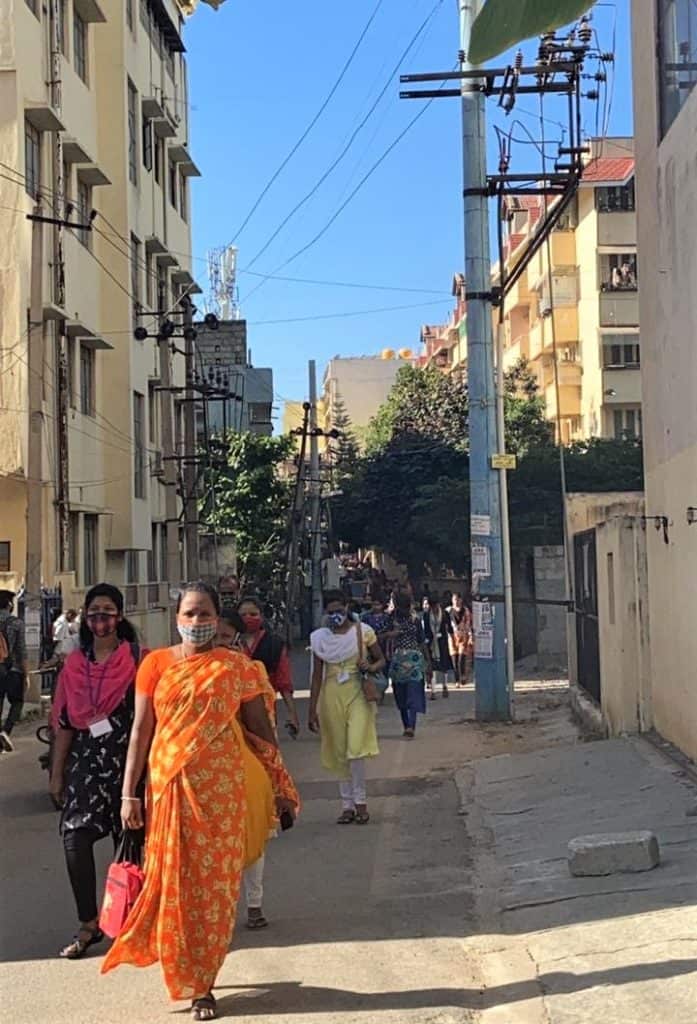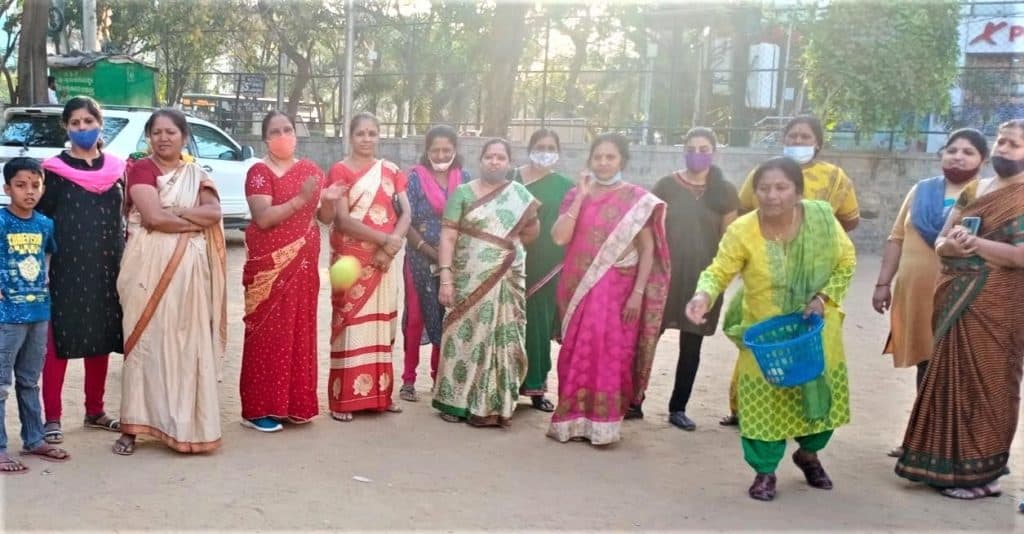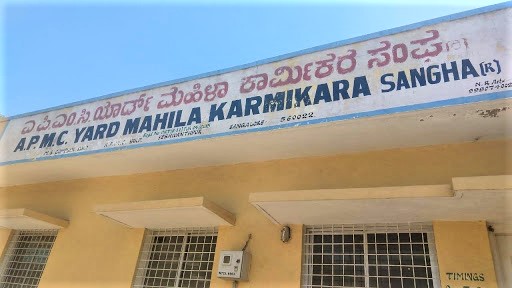We wrap up our coverage for this month with two stories on International Women’s Day, observed on March 8 every year. The first of the two stories finds out how labouring women workers commemorated it this March.
Among the savarna middle classes in Bengaluru, International Women’s Day on March 8 is celebrated with marathons and rallies, discounts in supermarkets, and ladies’ nights at pubs.
What is often swept under the label of ‘women empowerment’ is the history of Women’s Day as that of workers and their unionisation.
It was first proposed and celebrated in 1910 during the second International Conference of Working Women, by Clara Zetkin, a German Marxist, to press for better pay, shorter working hours, and voting rights for women.
Women’s Day has been a consequence of struggles both inside homes and on the streets for women’s right to work, to vote, to speak and be heard.
In a country where only 2% of women are employed — and among them, 95% in the informal sector — it is crucial that Women’s Day commemorates their struggles at work, especially after the diabolical impact of the COVID lockdown.
A lot of women workers come from dalit-bahujan backgrounds and suffer not just sexism, but also casteism at the workplace. Also, large numbers of women do sex work, garment work, domestic work, waste collection — work that is at the margins of not only society but also policy and popular imagination.
Read more: COVID aftermath: Bengaluru sex workers suffer starvation, violence

Commemoration instead of ‘celebration’
Pushpa Achanta, Associate Director at the NGO Solidarity Foundation that works for the dignity of sex workers and gender and sexual minorities, says there is often very little to celebrate. She suggests that if March 8 must be about anything at all, it should be about commemorating women’s struggles.
Hasiru Dala, a social impact organisation working with waste pickers, held two events for Women’s Day. At the online event on March 4, five women operators from Dry Waste Collection Centres were asked to share their experiences with other members.
Read more: Lockdown woes: Harsh work conditions for waste collectors
On March 8, in an event at Rajahmundry, the organisation gave ID cards to 200 waste workers so as to formalise what is otherwise caste-stigmatised informal work. Games and other activities were also held.
Archana V of Hasiru Dala says, “For this type of work, lower-caste and lower-class women only join… Last year was very tough for waste pickers because they earn only if they are on the road that day.”
Nagamma, from Karuna Domestic Workers’ Welfare Trust, said they organised an event on March 8 in collaboration with BBMP. Around 100 domestic workers gathered for activities like rangoli and lemon-and-spoon game. The organisers had to reduce participants’ numbers from 300 to 100 because of COVID restrictions.

Nagamma says, “Some were happy about the gathering, but the response is mixed and complex. Some complain about the difficulties they face — such as half-salaries or unemployment — when we call them for gatherings like this”.
Kumaresan, the president of APMC Yard Mahila Karmikara Sangha, spoke about the struggles of the women who do cleaning work in Yeshwanthpur APMC yard.
“What to do? No food. No work. Anyway, their life is only about working and feeding their family.”
Kumaresan, President, APMC Yard Mahila Karmikara Sangha
He said the women face dire working conditions and get no holidays at all. Nonetheless, the Sangha organised an event in their office by collecting small donations of Rs 10, Rs 20 or Rs 30 from members. The women were invited for a small gathering with food on the evening of March 8.
Read more: When life returns to normal, will our domestic workers finally get their due?
As he was speaking about the State’s neglect towards this section of workers, Kumaresan said to me, “You are the State”. He explained, “All college-going men, women, they come to us and we share with them what we do, we help them, but we never receive any help from them. You are the State.”

Garment workers protested
For the Garment Labour Union (GLU), one of the first garment workers’ unions in Karnataka, Women’s Day is not a festival but a day of protest. More so this year, because labour laws were watered down during the lockdown and working conditions have worsened due to COVID regulations.
Earlier, the factories used to provide free transportation for workers, but this has been withdrawn and hence workers’ expenses have increased.
The women face a lot more stress, not only because of the harassment they face in factories but also because of expenses like rent and school fees.
The idea of “celebration” for the factory managers was to allow the workers to wear colourful clothes instead of uniforms in the week leading up to Women’s Day, and giving them sweets and roses.
Read more: B’luru lockdown: Garment workers face uncertainty, factory owners unwilling to pay wages
To protest against this “festival”, GLU members refused to wear colourful clothes the whole week. Instead, they held a candlelight march named ‘Women in Black’.
After the march, they held an event to raise awareness on the history of Women’s Day and its importance for workers as well as on issues like gender equality and sensitivity. Discussions were held on the changing labour laws, labour rights, production pressure and sexual harassment in the workplace.
Can Women’s Day be inclusive of all women?
Perhaps, Women’s Day is too broad and too appropriated to really accommodate the concerns and issues of the most marginalised women.
Pushpa emphasized the importance of International Sex Workers’ Day, organised on March 3rd this year, as opposed to Women’s Day. Sister Nisha Mathew, Managing Trustee of Karuna Domestic Workers’ Welfare Trust, also told me that they engage with International Domestic Workers’ Day on June 16 with much more interest.
The lack of recognition for women’s work and their status as workers is probably why International Women’s Day has been reduced to free drinks and supermarket discounts.
Finally, in Pushpa’s words, “I think we should stop fooling ourselves into saying, ‘Despite everything, Happy Women’s Day’.”